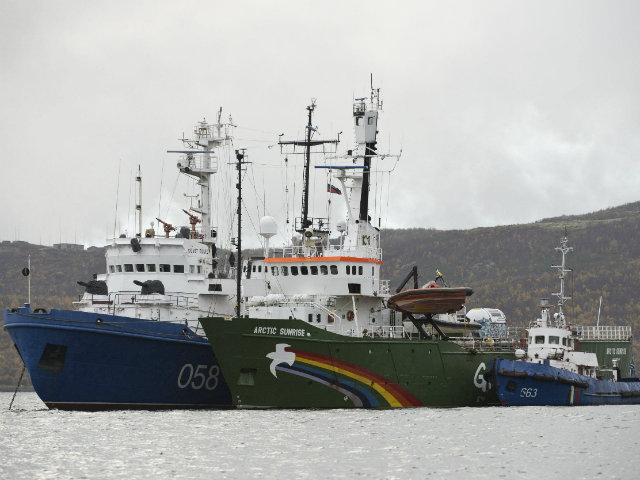Greenpeace’s boat ‘Artic Sunrise’ has been seized by Spanish authorities and impounded following allegations that those on board were harassing Spanish oil workers. The vessel is the same one seized by Russia in the Arctic in 2013 during a protest against oil drilling, according to The Local.
The Spanish Defence Minister Pedro Morenes today told Parliament that, during a protest near the Canary Islands on Saturday “the Arctic Sunrise violated the exclusion zone and ignored instructions by the (Spanish) navy boat Relampago to abandon the zone.
According to the minister, protestors aboard the Artic Sunrise launched smaller vessels into the sea in order to harass Spanish ship the Rowan Renaissance, owned by the Spanish oil company Repsol. Her crew is sailing near the Canaries to explore for oil and gas.
The Artic Sunrise, which sails under a Dutch flag, is now impounded at the port of Arrecife on the island of Lanzarote, and will not be released until the US Captain pays a bond of €50,000 for her release.
Greenpeace, meanwhile, claim to have a video showing Spanish naval vessels ramming the boats which Greenpeace were using to approach the Rowan Renaissance. They are complaining that one of their protestors, an Italian national, was thrown overboard and injured, and insist they were protesting peacefully.
This is not the first time that the Artic Sunrise has been held by authorities. In 2013 smaller vessels were again launched from the ship in order to protests against drilling operations by the Russian gas company Gazprom in the Pechora Sea, north of Russia. The Artic Sunrise tweeted “BREAKING: we’ve got 4 boats in the water heading towards Gazprom’s Arctic rig. We’re going to try and stop the drilling. #savethearctic”.
However, the Russians had other ideas, shooting at the protestors. The next day, Russian authorities seized the boat and removed the 30 strong crew to a detention facility. They were held for around two months before charges, first of piracy, and then of aggravated hooliganism, were dropped. One of the prisoners, a British activist named Alexandra Harris, wrote home complaining of a “very poorly insulated window,” the “revolting meatballs” and finding it “hard to meditate”. She also noted that “not much happens on the weekends in prison.”
The boat had been released from Russian custody for just six months before being seized by the Spanish.

COMMENTS
Please let us know if you're having issues with commenting.